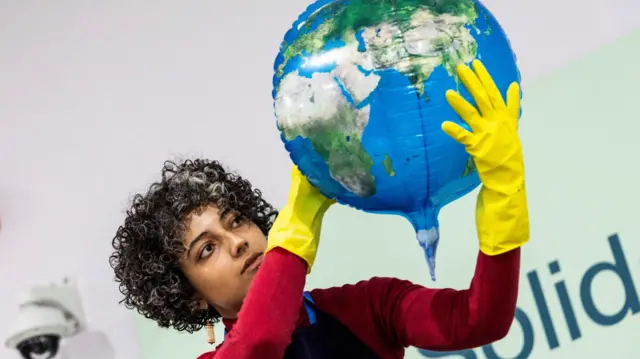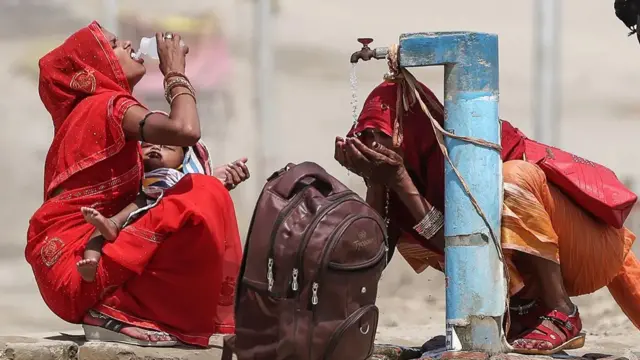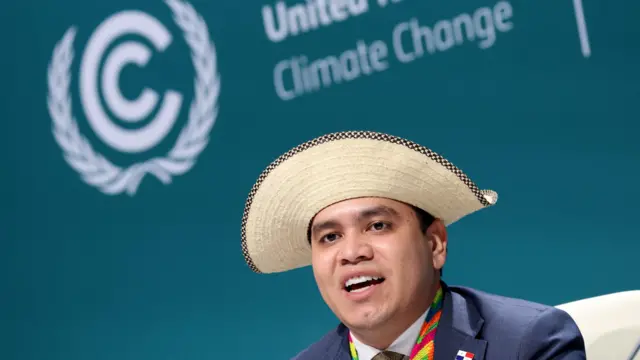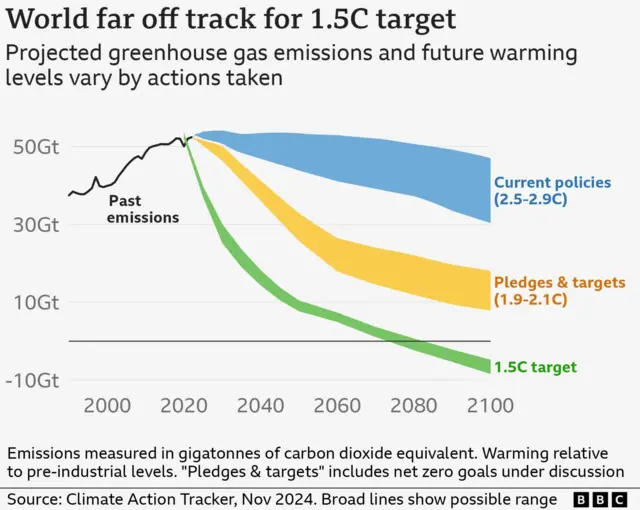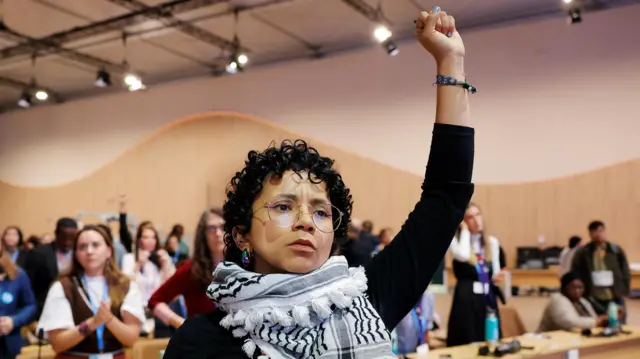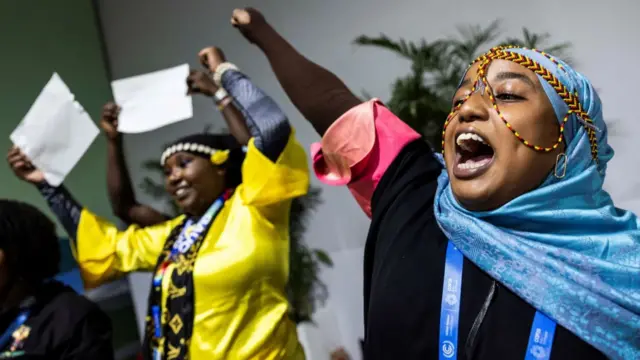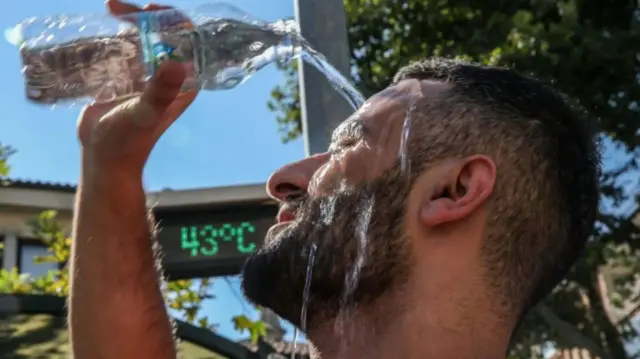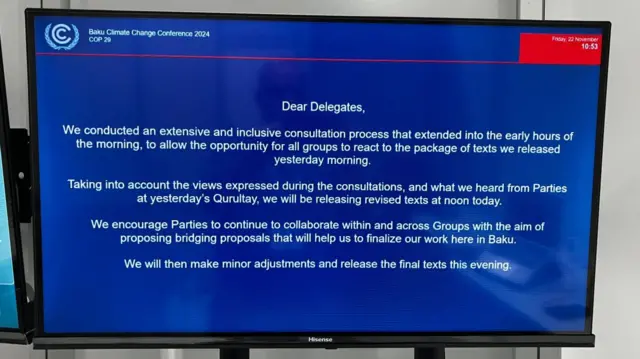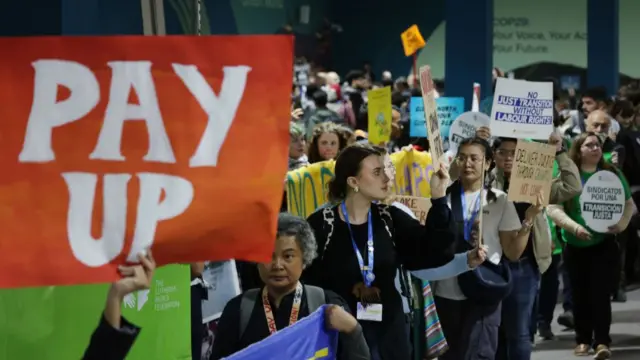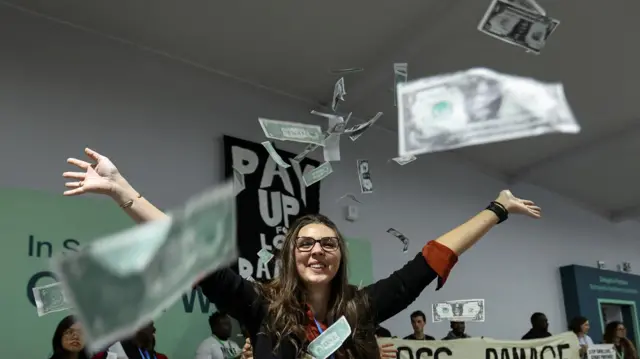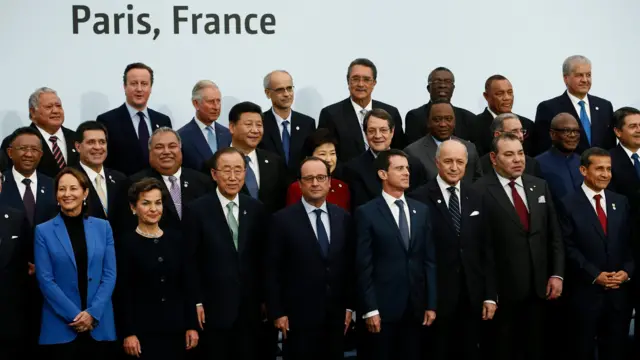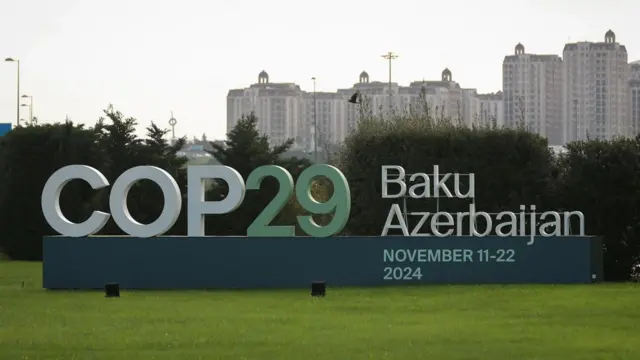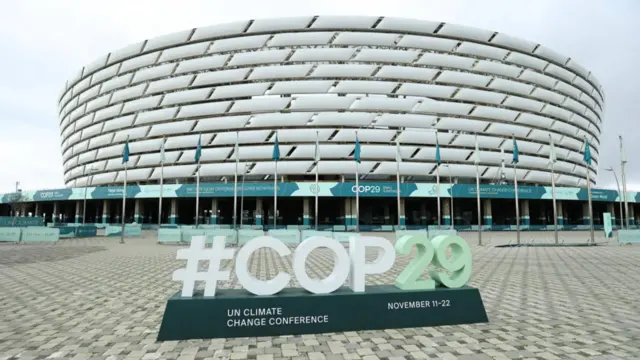What's being discussed at this year's COP?published at 09:40 GMT 22 November 2024
Matt McGrath & Georgina Rannard
Environment correspondent and climate reporter in Baku
A key question this year is money.
Under the Paris agreement signed in 2015, world leaders pledged to try to prevent global temperatures rising by more than 1.5C. For that to happen countries need to ramp up their efforts to cut warming gases.
As part of the agreement, countries committed to develop a new cash target for developing nations by 2025. This money would be used to help emerging economies cut their carbon and adapt to the worst impacts of rising temperatures.
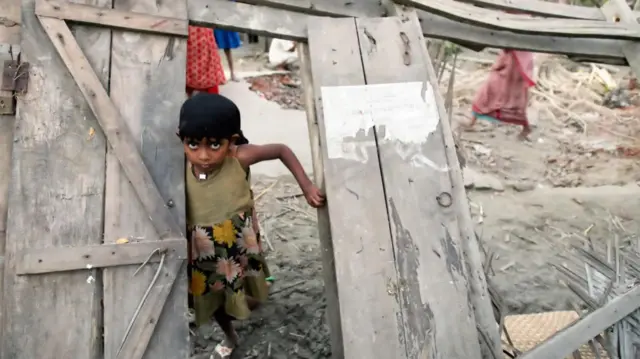 Image source, Getty Images
Image source, Getty ImagesClimate change is a critical issue for Bangladesh
Getting agreement on a new finance target is seen as a critical step in building trust between rich and poor nations as, so far, the track record hasn’t been great.
African countries and small island states want to see climate finance in total reach over $1tn (£800bn) a year by 2030.
Up to now countries like China and the Gulf States have been classified as developing economies and been exempt from contributing.
According to the EU and other wealthy countries, that must change if the overall amount of cash is to be increased.

